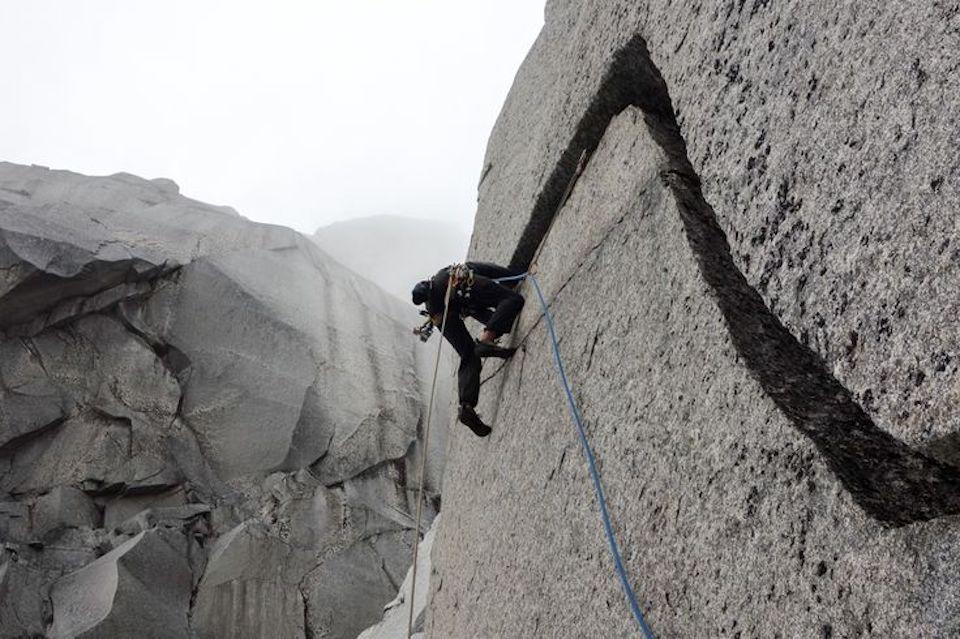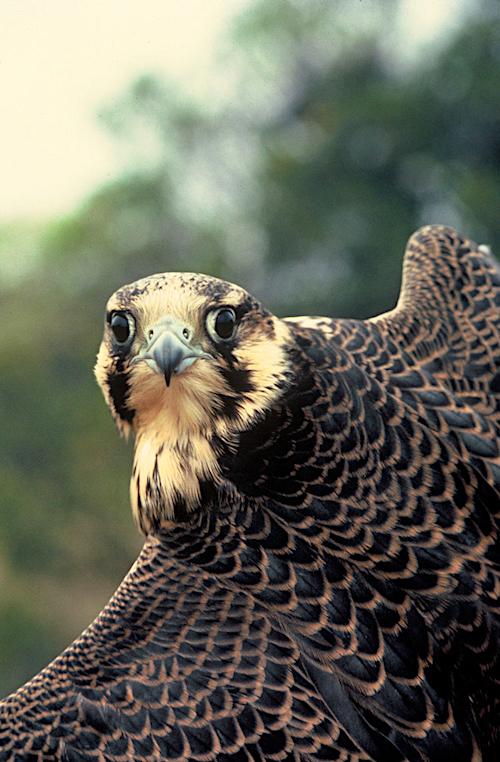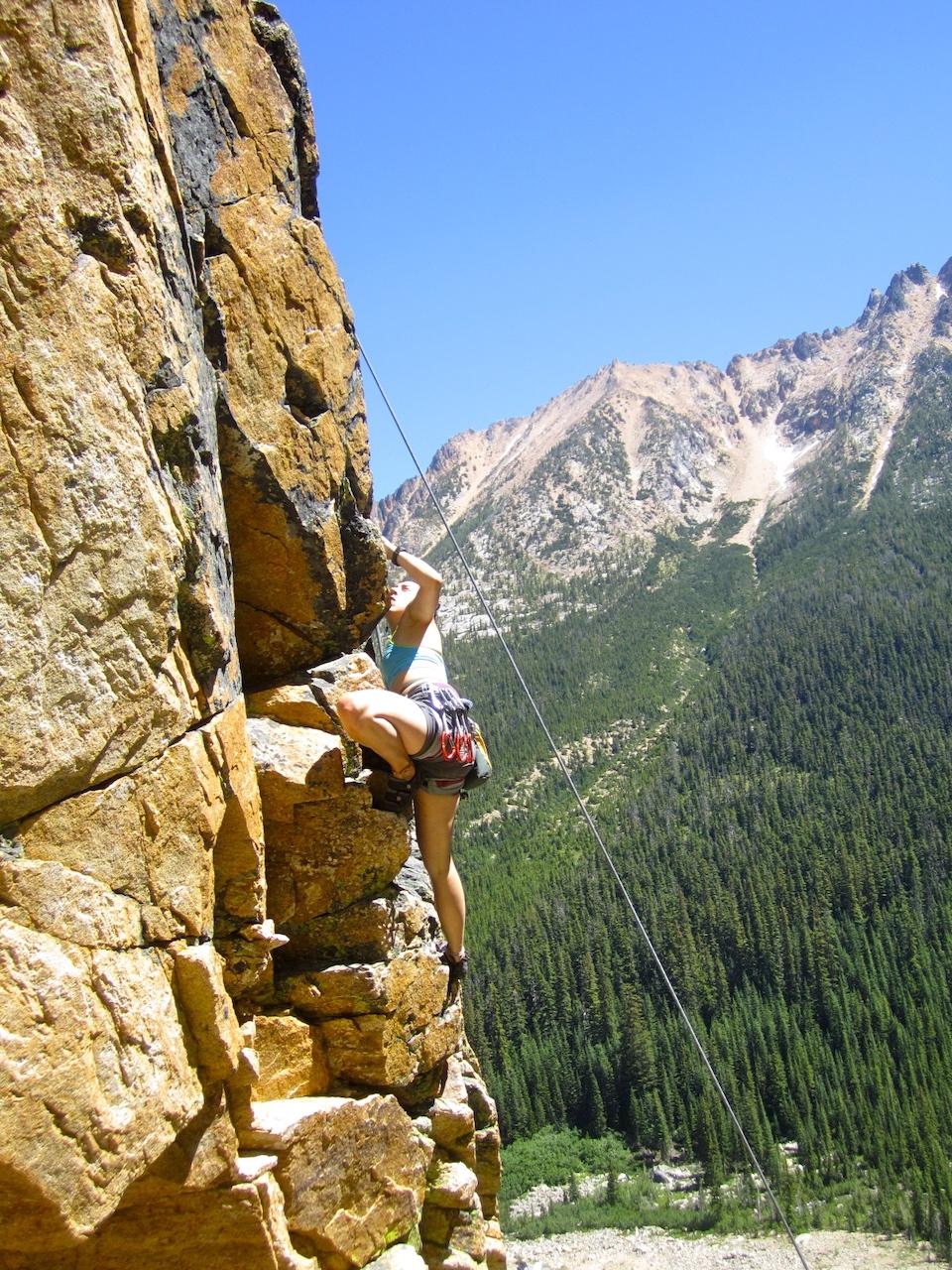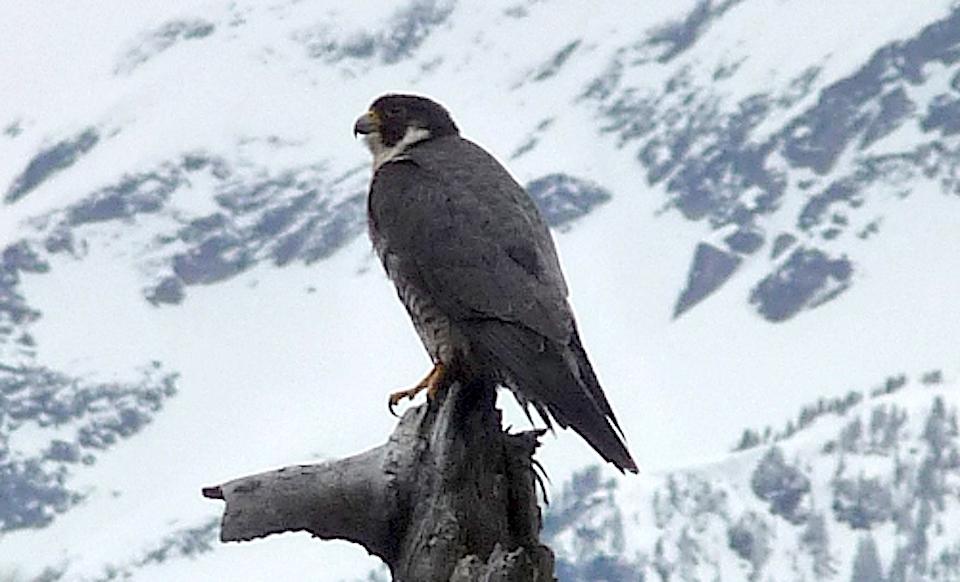
Climbing in North Cascades National Park/North Cascades Institute
Editor's note: Conserving wildlife unimpaired in the national parks for the enjoyment of future generations can be tricky in today's recreational circles. At North Cascades National Park in Washington state, park staff work to balance the needs of peregrine falcons and climbers who share the same habitat. The following article was written by Matt Ferrell for the North Cascades Institute.
The 1916 legislation that established the National Park Service, commonly referred to as the Organic Act, stipulates that the mission of the agency is: “….to conserve the scenery and the natural and historic objects and the wild life therein and to provide for the enjoyment of the same in such manner and by such means as will leave them unimpaired for the enjoyment of future generations.”
It is this paradoxical language “to conserve” and “to provide for the enjoyment of” that has created conflict and controversy in our National Park System throughout its storied, century-long history. Those who seek to enjoy the natural splendor of our national treasures have often pushed for infrastructure and recreation that runs counter to the preservationist ethic to see these places left unimpaired. However, without allowing people to enjoy the parks, the very notion for which they were created would be betrayed. Therefor, park managers are asked to walk a delicate tightrope of balance between competing interests.
Conflict appears to have flared up again, and this time in our own backyard. On February 28, North Cascades National Park Complex issued a climbing moratorium for Newhalem Crag East and Newhalem Crag West (Ryan’s Wall) Climbing Management areas effective March 1 to July 15. The Park Service claims the move is an effort to protect nesting areas for the iconic Peregrine Falcon during the Spring nesting season.

Peregrine Falcon, North Cascades National Park/North Cascades Institute
Peregrine Falcons (Falco pereginus) are a federally protected species under the Migratory Bird Treaty Act. The largest in the Falcon family, Peregrines are known by many as the fastest creature on Earth, clocking speeds at over 200 mph during their characteristic high-speed dives, known as hunting stoops. They are generally well-adapted birds and have historically existed in many ecosystems, from Arctic tundra to temperate forests, and even deserts. Unfortunately, their populations dwindled during the later half of the 20th century due to poaching and increased pesticide use and the species was placed on the Endangered Species List. While their numbers have rebounded as a result of captive breeding programs and government efforts to ban harmful pesticides, such as DDT, they remain a species of concern within North Cascades National Park and special attention is paid to nesting habitat. Because Falcons tend to nest on rock ledges and cliff faces, there is the potential for conflict with recreational rock climbers.
Mountaineering and sport climbing have long been favorite activities of the more adventurous visitors to the North Cascades. Rock climbing specifically is one of the fastest growing sports in the country with 4.6 million people participating in climbing annually. For local climbers, access to these crags is important especially as Spring arrives and popular climbing routes thaw out from the cold, wet winter. Yet, because of the NPS duty to protect Park resources, rules have always restricted these activities to certain areas.
The Ross Lake Recreation Area General Management Plan states that the necessary studies have taken place and rock climbing has been approved at four locations. They are all in the Ross Lake Recreation Area along Highway 20 and include Newhalem East, Newhalem West (Ryan’s Wall), Newhalem Town Walls, and Diablo Wall. Climbing is not allowed in areas designated “wilderness.” Now, park officials believe that the privilege to climb inside the park has been abused.

A climber ascending a route in what could be considered prime Falcon nesting habitat/North Cascades Institute
“Resource damage in non-climbing management areas, including a bolted route directly through a recently used Peregrine nesting site, has caused concern,” said Park Superintendent Karen Taylor-Goodrich in a press release. “We are seeing expanded use of sport climbing activities outside the established climbing management areas and are reviewing the effects on the natural and cultural resources in the park.”
This issue at hand seems to be around the process of designating new areas for climbing. Because of limited park resources to adequately review and assess new areas for potential resource damage before approving Climbing Management Areas, the process can often be long and arduous. An area known locally as “Space Wall,” located above the Skagit Gorge, has been previously developed without approval, presumably by people who were unaware of the proper channels. Efforts to have the area reviewed and approved since have stalled, and frustration over the pace of progress along with limited enforcement resources by park staff have likely emboldened some climbers to continue exploring and developing outside of approved routes, and in some cases into falcon nest sites.
While climbers come from many different walks of life, climbing culture has a long history of environmental stewardship and respect for the natural world. Seasonal closures for raptors and other natural and cultural resources are common throughout the country, and many climbing organizations promote volunteer stewardship, research, and wildlife monitoring efforts to help land management agencies balance recreation and preservation. Washington State, in particular has the largest participation in joint membership Access Fund of anywhere in the country.
Calvin Laatsch, a local climber and volunteer with Washington Climbers Coalition, says “Climbing closures in the North Cascades are not new, and the challenges in granting access for new climbing or reopening areas that have been closed seem to all tie back to park resources or, more specifically, time and staff.

“By sidestepping the process, the actions of a few individuals erodes the relationship between the national park and the entire climbing community. The park has a duty to preserve wildlife habitat and manage resources for recreation. When these two things appear to be at odds, one must dig deeper to find how to manage for both. This often requires more time and energy.”
Time and energy appear to be increasingly in short supply these days as national parks struggle to keep up with increasing numbers of visitors nationwide and the effects, usually unintentional, this has on park resources. It is therefor incumbent upon those who recreate on public lands to exercise patience and respect, educate themselves on management issues and, when necessary, lend a hand.
While it is unclear how long the climbing closures will remain in place, a compromise has been reached to reopen Diablo Wall and Newhalem Town Walls, which have no recent history of Falcon activity. Other sites may reopen as well if peregrines do not select them for nesting sites within a certain time frame. This compromise could only be possible through volunteer monitoring programs to take the load off of park biologists.Calvin says:
My hope is that the work we do to support management of the park resources, in this case falcon nesting areas and Skagit Gneiss, shows the mutual care and stewardship for this amazing place and all of it’s inhabitants, including falcons and dirtbag climbers.”
As with most issues connected to public lands, there are many perspectives and issues to consider about the correct path forward. While we may not always agree, it is important in times of divisiveness that we remain committed to listening, learning, and helping create a future that stays true to the mission of balance between enjoyment and preservation. We all have a role to play in the continued access and stewardship of our public lands.
If access to climbing and responsible recreation in the North Cascades is important to you, you can get involved or donate to Washington Climbers Coalition or participate in “Adopt a Crag” stewardship days, or contact North Cascades National Park with your questions, concerns or support for climbing access in Ross Lake Recreation Area.



 Support Essential Coverage of Essential Places
Support Essential Coverage of Essential Places






